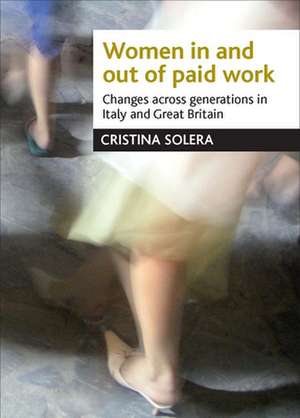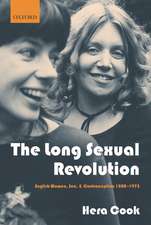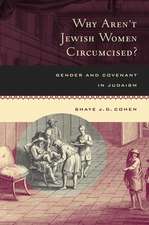Women in and out of paid work: Changes across generations in Italy and Britain
Autor Cristina Soleraen Limba Engleză Hardback – 28 iul 2009
Over the last fifty years women's employment has increased markedly throughout developed countries. Women of younger generations are much more likely than their mothers and grandmothers to enter the labour market and stay in it after they marry and have children. Are these changes due only to changes in women's investments and preferences, or also to the opportunities and constraints within which women form their choices? Have women with higher and lower educational and occupational profiles combined family responsibilities with paid work differently? And have their divisions changed?With an innovative approach, this book compares Italy and Great Britain, investigating transformations in women's transitions in and out of paid work across four subsequent birth cohorts, from the time they leave full-time education up to their 40s. It provides a comprehensive discussion of demographic, economic and sociological theories and contains large amounts of information on changes over time in the two countries, both in women's work histories and in the economic, institutional and cultural context in which they are embedded. By comparing across both space and time, the book makes it possible to see how different institutional and normative configurations shape women's life courses, contributing to help or hinder the work-family reconciliation and to reduce or reinforce inequalities. "Women in and out of paid work" will be valuable reading for students, academics, professionals, policy makers and anyone interested in women's studies, work-family reconciliation, gender and class inequalities, social policy and sociology.
Preț: 777.97 lei
Preț vechi: 1010.34 lei
-23% Nou
Puncte Express: 1167
Preț estimativ în valută:
148.87€ • 155.82$ • 123.90£
148.87€ • 155.82$ • 123.90£
Carte tipărită la comandă
Livrare economică 01-15 aprilie
Preluare comenzi: 021 569.72.76
Specificații
ISBN-13: 9781861349309
ISBN-10: 1861349300
Pagini: 240
Dimensiuni: 172 x 240 x 18 mm
Greutate: 0.57 kg
Editura: Bristol University Press
Colecția Policy Press
Locul publicării:United Kingdom
ISBN-10: 1861349300
Pagini: 240
Dimensiuni: 172 x 240 x 18 mm
Greutate: 0.57 kg
Editura: Bristol University Press
Colecția Policy Press
Locul publicării:United Kingdom
Recenzii
This book breaks new ground in our understanding of women and careers. It is a must read for anyone interested in gender and the lifecourse and exemplifies the very best of contemporary sociological analysis - a scientific tour de force that merits our applause. Gosta Esping-Andersen, Professor of Sociology, Universitat Pompeu Fabra
Breen's testimonail in reviews
This is an illuminating and exemplary piece of comparative research, addressing - and answering - complex questions in understanding the dynamics of women's labour force participation in the UK and Italy. Richard Breen, Professor of Sociology, Yale University
....Solera’s contribution should be part of the obligatory readings of all family and labour market sociologists interested in the study of women’s life chances in contemporary society. Alvaro Martinez Perez, Sociologica Online
Notă biografică
Cristina Solera, Social Sciences Department, University of Turin
Cuprins
Introduction
Conceptualising influences on women's employment transitions: from various sociological and economic theories towards an integrated approach
Changes in the Italian and British contexts: the link with women's employment patterns
Method, data and hypotheses
Who leaves the labour market and who returns? The changing effect of marriage and children
'Her' and 'his' education and class: new polarisations in work histories
Conclusions
Conceptualising influences on women's employment transitions: from various sociological and economic theories towards an integrated approach
Changes in the Italian and British contexts: the link with women's employment patterns
Method, data and hypotheses
Who leaves the labour market and who returns? The changing effect of marriage and children
'Her' and 'his' education and class: new polarisations in work histories
Conclusions












